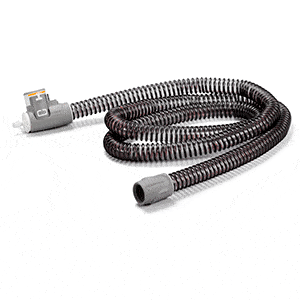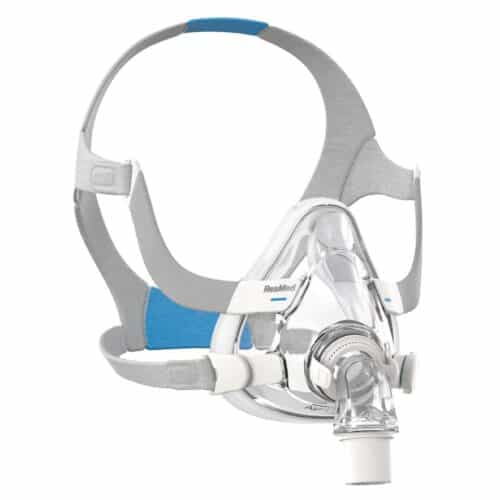Get 10% off your order!
Sign up below for PAP’s Newsletter, and keep an eye on your inbox for a one-time code. Offer not available on sale items.
If you’ve recently been diagnosed with sleep apnea and prescribed CPAP therapy (or if you suspect you have sleep apnea, but haven’t yet been tested), you probably have tons of questions about the treatment and equipment. Which is the right mask for me? Should I keep using my machine when I have a cold? How is sleep apnea affecting my job performance? Will using a CPAP machine impact my relationship? Are there any side effects when using a CPAP machine?
Today, we’d like to tackle several topics related to that last question–Are there any CPAP side effects and risks? Let’s jump in.
There are a few common issues associated with CPAP usage, especially for those new to CPAP therapy. Mask irritation, leaks and pressure sores are all reported side effects of regular nightly usage. Typically, these issues can be resolved with a different size or different type of mask. Regular cleaning and regular replacement of worn components can also help to alleviate irritation and sores.
Some CPAP users struggle to use the CPAP mask consistently or cite feelings of claustrophobia. Again, these issues can oftentimes be resolved by using a different size or style of mask. Nasal pillows are the smallest type of CPAP mask, and make work better for those who feel constrained during the night.
The third most commonly reported side effect of CPAP machine usage is dry nose and mouth. This issue can be helped with the use of an air humidifier, which will moisturize the air you breathe in throughout the night.
CPAP machines push air into your lungs, so there is no concern of suffocation when the equipment is functioning properly and being used according to instructions.
In 2004, there was a very rare case of patient suffocation; however, it must be noted that this is extremely, EXTREMELY rare and there were several things that went wrong in this one single case: a power failure caused the equipment to stop working, the patient did not wake up from lack of breath, and the safety valve on the full face mask failed because of a DIY tape repair.
It is extremely rare for CPAP machines to cause lung problems. In the rare instance that CPAP does contribute to lung-related issues, the key reasons are 1. The CPAP equipment was not cleaned properly, or 2. The patient was suffering from an unchecked sinus or respiratory infection. Be sure to discuss chronic sinus infections with your sleep doctor before starting on CPAP therapy.
When used (and cleaned) properly, CPAP machines and CPAP therapy are generally considered to be safe, and the most effective and long-term treatment of sleep apnea. In fact, CPAP can actually extend your life–according to the Sleep Heart Health Study and U.S. National Institutes of Health, CPAP usage results in a 62% decline in the odds for death for any cause over 11 years of follow-up.
In case you haven’t figured it out yet, there are two key (but entirely avoidable) times when CPAP can be a danger to your health–1. When your equipment is dirty and 2. When you’re using old or worn components.
And how do you avoid these dangers? By making sure to clean your CPAP mask and supplies on a regular basis, and by replacing the various CPAP components before they get old and worn out. Some warning signs that your equipment needs to be cleaned or replaced include: you’re always getting sick, you have frequent headaches, or there is an unfresh smell (think mildew) emanating from your mask.
Following are some additional ways to avoid CPAP risks or side effects:
When Something Doesn’t Feel Right, Try New Equipment – There are so many different combinations of CPAP mask + cushion + frame + headgear, etc. Every patient is different and your needs can change over time. If something doesn’t feel right, it probably isn’t and you may need to test a few combinations to find the best one for you, today.
When a Component Breaks, Don’t MacGyver It – If something breaks on your mask or your hose won’t fit into the machine, please resist the urge to tape it or otherwise DIY it together! Replace the broken or worn components to ensure you’re getting not only the best but also the safest CPAP therapy. And be sure to check each component every night before using it to make sure it’s all in tip-top shape.
When the Pressure Is Too Much, Double Check the Settings – If the air pressure is too high, you could start to swallow air (called aerophagia), which can cause abdominal discomfort, stomach bloating, and painful gas. If you’re experiencing any of these gastrointestinal issues, don’t hesitate to talk to your doctor. Reducing or otherwise changing up the pressure settings could be an easy fix, but you’ll need a medical professional to confirm the right setting.
When in Doubt, Talk to Your Doctor – Have you done too much Google self-diagnosing, and now you’re worried CPAP could be the cause of every ache and pain in your body?! First, put down the phone or walk away from the computer. Second, pick the phone back up or walk back to the computer, you’re probably going to need it to connect with your doctor and you’re definitely going to need it to connect with our Virtual Sleep Clinic. Third, discuss your concerns with a trained medical professional so you can start getting the sleep you deserve.
The cpapRX Clinical Team is here for you to discuss any concerns or questions you may have. Call us at (866) 318-4548, email sleeptight@cpaprx.com or click to blue “Contact Us” button in the bottom right corner to Live Chat.


Sign up below for PAP’s Newsletter, and keep an eye on your inbox for a one-time code. Offer not available on sale items.
SUBSCRIBE TO OUR NEWSLETTER Receive exclusive offers & insightful articles to enhance your sleep.
Search by product name, type or brand.
